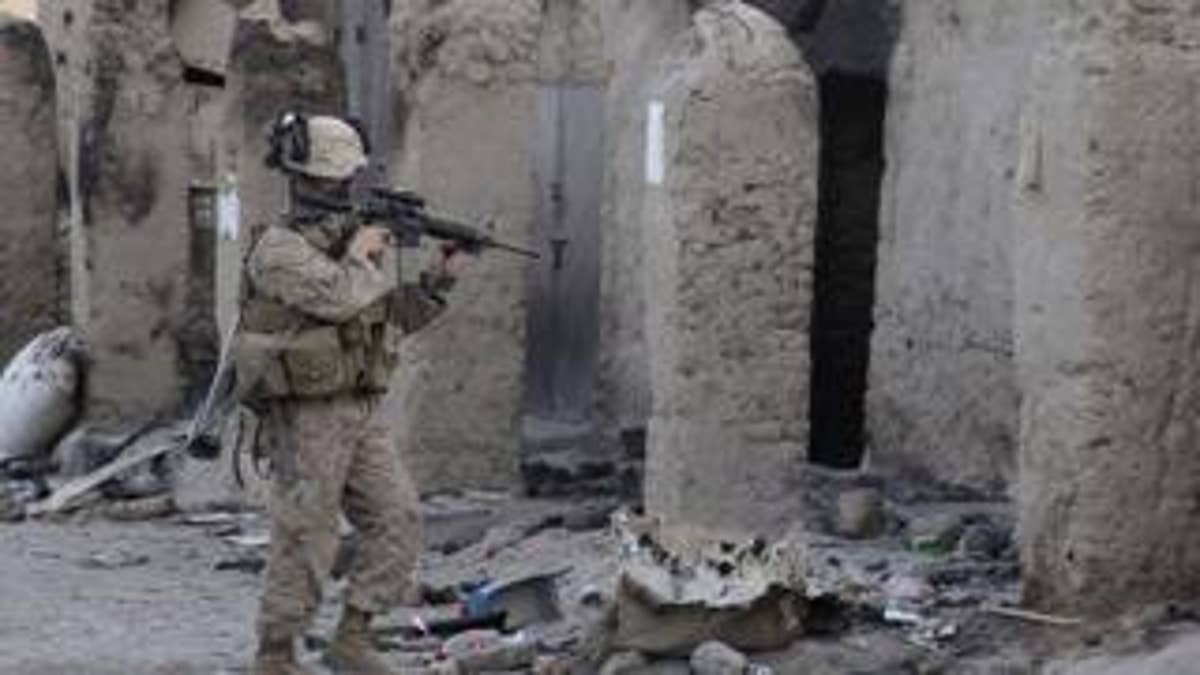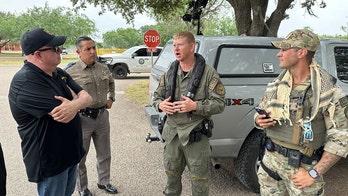
Defense Secretary Robert Gates has harshly criticized the decision by the Associated Press to distribute a photograph of a Marine who was fatally wounded in Afghanistan -- even after the young man's father called the wire service and asked that the photo not be released.
Gates, in a letter sent Thursday, called the decision "appalling," and went so far at to ask the AP to reconsider distributing the photo of Marine Lance Cpl. Joshua M. Bernard of Maine.
Referring to Bernard's parents, Gates wrote to Thomas Curley, the wire service's president and CEO: "Your lack of compassion and common sense in choosing to put this image of their maimed and stricken child on the front page of multiple American newspapers is appalling.
"The issue here is not law, policy or constitutional right -- but judgment and common decency."
Politico.com reported that Pentagon Press Secretary Geoff Morrell said Gates perviously had told Curley, "I am asking you to reconsider your decision to publish this graphic photograph of Lance Corporal Bernard. I am begging you to defer to the wishes of the family. This will cause them great pain."
But the Associated Press defended its decision, saying it reached it after "a period of reflection."
In an Aug. 14 attack by the Taliban in the Helmand province in southern Afghanistan, Bernard, 21, of New Portland, Maine, was hit by a rocket-propelled grenade. AP photographer Julie Jacobson, who was embedded with Bernard's unit, captured an image of fellow Marines trying to rescue him as he suffered severe leg injuries.
Jacobson, who was crouching under fire, took the picture from a distance with a long lens and did not interfere with Marines trying to assist Bernard.
Bernard was taken to a field hospital, where he died on the operating table, AP reported.
The AP waited until after Bernard's burial in Madison, Maine, on Aug. 24 to distribute its story and the pictures. An AP reporter met with his parents, allowing them to see the images.
Bernard's father, after seeing the image of his mortally wounded son, told the photographer that he opposed its publication, saying it was disrespectful to his son's memory. John Bernard reiterated his viewpoint in a telephone call to the AP on Wednesday.
But the AP decided that the news value of the photograph trumped the request not to run it.
"AP journalists document world events every day. Afghanistan is no exception," Santiago Lyon, the wire service's director of photography, said. "We feel it is our journalistic duty to show the reality of the war there, however unpleasant and brutal that sometimes is."
"We understand Mr. Bernard's anguish. We believe this image is part of the history of this war. The story and photos are in themselves a respectful treatment and recognition of sacrifice," said AP senior managing editor John Daniszewski.
Lyon said the image shows Bernard's "sacrifice for his country."
"Our story and photos report on him and his last hours respectfully and in accordance with military regulations surrounding journalists embedded with U.S. forces," Lyon said.
Jacobson, in a journal she kept, recalled Bernard's ordeal as she lay in the dirt while Marines tried to save their comrade with bullets overhead.
"The other guys kept telling him 'Bernard, you're doing fine, you're doing fine. You're gonna make it. Stay with me Bernard!'" As one Marine cradled Bernard's head, fellow Marines rushed forward with a stretcher.
Later, when she learned he had died, Jacobson thought about the pictures she had taken.
"To ignore a moment like that simply ... would have been wrong. I was recording his impending death, just as I had recorded his life moments before walking the point in the bazaar," she said. "Death is a part of life and most certainly a part of war. Isn't that why we're here? To document for now and for history the events of this war?"
Later, she showed members of his squadron all the images taken that day and the Marines flipped through them on her computer one by one.
"They did stop when they came to that moment," she said. "But none of them complained or grew angry about it. They understood that it was what it was. They understand, despite that he was their friend, it was the reality of things."
The Associated Press contributed to this report.




